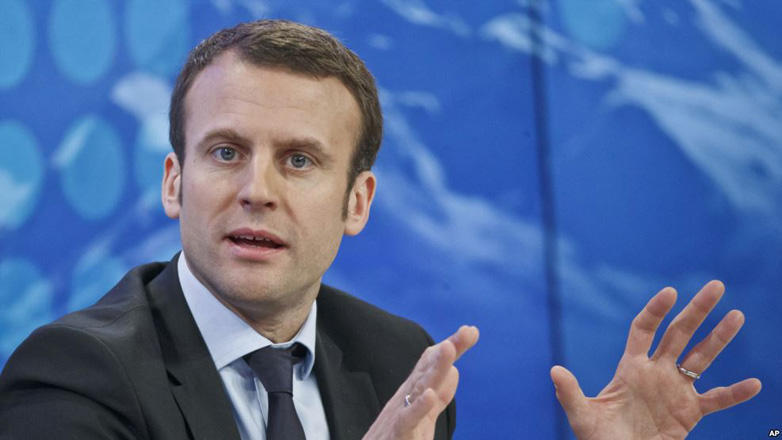Macron's statement on control of "Islamic Extremism" could be seen as indirect warning to Turkey

By Trend
The statement of France’s President Emanuel Macron promising to control "Islamic Extremism" in France could be interpreted as an indirect warning to Turkey as well, defense consultant Peter Dunai told Trend.
Dunai said that another interpretation could be that there is a huge and very influential Armenian community living in France, which plays an important role in the country's economy.
"Besides, France’s role within the EU grew as Great Britain left the community. At the same time, the French-German powerplay started getting stronger. So in all, Macron is in a difficult position, this is partly to explain his words,” Dunai said.
Dunai reminded that France is also a member of the infuential Minsk Group, which has been engaged in solving the Armenia-Azerbaijan Nagorno-Karabakh conflict, and said that the other members of the group, the US and Russia should not be forgotten.
“While the US is busy with the upcoming elections and doesn’t show particular interest in solving the Karabakh issue, Russia plays a key role in regulating the conflict. And Russia doesn’t want a war in the South Caucasus – I am convinced. Moscow has great leverage over Yerevan, both as the principal weapons supplier, economic partner, and CSTO-member,” he said.
Dunai expressed certainty that Russia will mediate a solution to the issue, which has remained unresolved since the 1990's.
“A referendum, which is a key point of Armenia’s position on Nagorno-Karabakh is not a solution. Armenia in the last 26 years resettled the region with Armenians coming from the country or abroad (from the Middle East), so a referendum would distort the situation and wouldn’t solve the problem. Nagorno-Karabakh and the seven adjacent districts occupied belong to Azerbaijan - this is the bottom line,” Dunai said.
Armenian Armed Forces launched a large-scale military attack on positions of Azerbaijani army on the front line, using large-caliber weapons, mortars and artillery on Sept. 27.
Azerbaijan responded with a counter-offensive along the entire front. As a result of retaliation, Azerbaijani troops liberated a number of territories previously occupied by Armenia, as well as take important, strategic heights under control.
The fighting continued into October 2020, in the early days of which Armenia launched missile attacks on Azerbaijani cities of Ganja, Mingachevir, Khizi as well as Absheron district.
The conflict between the two South Caucasus countries began in 1988 when Armenia made territorial claims against Azerbaijan. As a result of the ensuing war, Armenian armed forces occupied 20 percent of Azerbaijan, including the Nagorno-Karabakh region and seven surrounding districts.
The 1994 ceasefire agreement was followed by peace negotiations. Armenia has not yet implemented four UN Security Council resolutions on the withdrawal of its armed forces from Nagorno Karabakh and the surrounding districts.
---
Follow us on Twitter @AzerNewsAz
Here we are to serve you with news right now. It does not cost much, but worth your attention.
Choose to support open, independent, quality journalism and subscribe on a monthly basis.
By subscribing to our online newspaper, you can have full digital access to all news, analysis, and much more.
You can also follow AzerNEWS on Twitter @AzerNewsAz or Facebook @AzerNewsNewspaper
Thank you!
